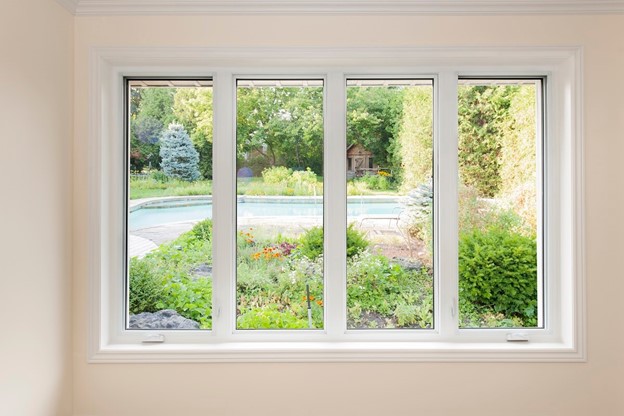
Replacing your old windows with new energy-efficient ones is seen as a way to better insulate your home and reduce your energy bills. However, window replacement is a costly project, even on a moderate size home. To entice homeowners to commit to upgrading their windows, installation companies will often claim that you will quickly earn back the money in energy cost savings.
To make an informed decision on new windows, you need to first understand how true or untrue these claims are. We’re here to provide the information you need so you can decide for yourself whether energy-efficient windows are worth the investment.
If you’re on the fence about whether to upgrade or not, this article will help you determine if it’s the best option for you and whether or not your investment will really save you money on your energy bills.
Let’s dissect what energy-efficient means when it comes to windows. By the end of this article, you’ll know whether they’re worth the investment for your circumstances.
How Exactly Do Energy-Efficient Windows Work?
Energy efficiency comes from three different sources – the window frame, the number of window panes, and the type of glass they’re made from.
- Older windows tend to feature aluminum frames. These frames don’t do a great job of blocking the passage of air. Fiberglass or vinyl frames are modern solutions that keep homes cooler in the summer and retain heat in the winter.
- Single-glazed windows don’t do a great job of regulating the temperature of a home. They’re often very drafty and victims of condensation build-up. Double- or even triple-glazed windows are much better insulators. They don’t create a draught, nor do they allow condensation to form.
- Between each window pane is a layer of an inert gas such as argon or krypton. This layer of gas significantly reduces the amount of air that passes through the window.
By keeping the air in your home in its place, your heating system doesn’t have to work as hard to keep you cool or warm. Better windows will reduce your energy consumption.
The Importance of Installation
The quality of your windows is important, but your window installer plays a big role in their overall efficiency. A badly installed window won’t do its job properly and can cause you costly problems later down the line.
Make sure you protect your investment by choosing a tried and trusted professional to do the job. If your windows are installed well, they will last longer as well as giving you maximum energy-efficiency
Which Windows are Best?
When browsing new windows, look out for the ENERGY STAR label. Once you have found this, you can look up the rating from the National Fenestration Rating Council (NFRC). All ENERGY STAR-certified windows will have an NRFC rating, making it an easy and reliable way to check if the windows are up to the job. You can also use the NFRC to compare and determine the best type of window for your budget.
What Are the Energy Savings?
The Department of Energy estimates that you can save $125 to $465 a year on your energy bills when you replace your windows. Of course, the amount will depend on how bad your original windows were. For example, upgrading from single-glazed to double-glazed windows should significantly improve airflow, whereas replacing old double-glazed windows for newer versions won’t cause such a dramatic improvement.
Are Energy-Efficient Windows Ultimately Worth it?
The short answer to this question is yes, but you shouldn’t purchase energy-efficient windows with solely the view of making your money back on energy bill savings. Many less reputable window installers will make spurious claims that about gaining the cost of your windows back in energy savings. We’re here to level with you. That just isn’t true.
Upgrading your windows can be a costly project. Good quality windows will set you back on average $650 per window (based on the national average). This can rise to $1,800 per window if you have large or unique shaped frames. Multiply that figure by the number of windows in your home and you’ve got an expensive project on your hands.
The good news is that good quality windows will keep your energy bills at a moderate level of consumption. Additionally, you won’t waste extra power trying to keep your home warm or cool. Still, don’t expect significant savings unless your windows were in a very bad state to begin with.
Energy-efficient windows will provide a superior level of comfort in your home. You won’t have to suffer annoying drafts or freezing cold air in the winter. Nor will you have to endure excessive heat in the summer. Considering most new windows will come with a 20-year warranty, that’s a lot of time to enjoy the comfort they bring!
When Should I Consider an Upgrade?
If your windows are over 20 years old, it’s time to start monitoring them closely. This is when they begin to deteriorate. It’s usually recommended that around this time, you should consider an upgrade. Windows left to fall into disrepair can create other problems that will take more time and money to put right.
Ultimately, upgrading your entire home is less costly and time-consuming than doing it bit by bit. If you have a few damaged or unsafe windows, it’s wise to consider replacing them first and doing the rest of the house later.
Conclusion
We don’t recommend that you buy energy-efficient windows with the sole purpose of making your money back quickly. There are many other benefits to having good quality windows. It’s always a great idea to keep your windows in good shape, upgrading them to the best quality within your budget. This way, you will enjoy a comfortable home without putting additional strain on your energy consumption.
